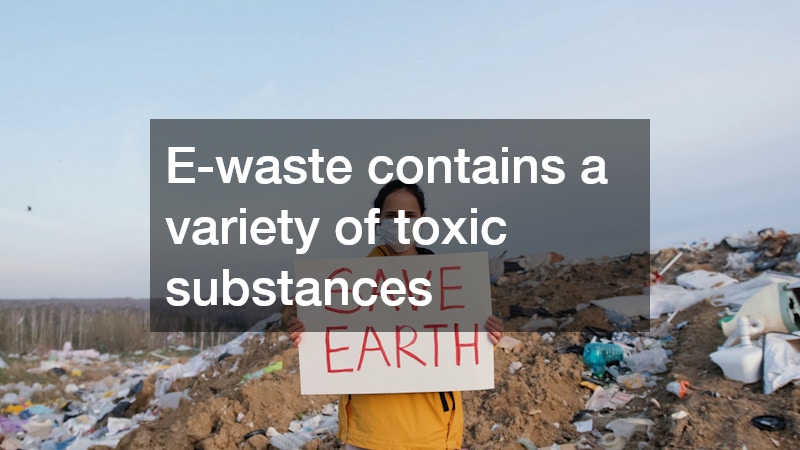Electronic waste, or e-waste, has become a significant environmental issue in recent years as technology continues to advance at a rapid pace. The improper disposal of electronics can lead to harmful effects on the environment and human health. It is essential for individuals to understand the importance of responsible electronics disposal to mitigate these impacts. This article discusses responsible electronics disposal methods and strategies to reduce overall e-waste.
How to Recycle Electronics Responsibly
When it comes to recycling electronics, there are several options available to individuals. Many electronic retailers offer recycling programs where old devices can be dropped off for proper disposal. Additionally, there are specialized e-waste recycling centers that can handle more extensive electronic items. By utilizing these resources, individuals can ensure that their electronics are recycled in an environmentally friendly manner.
Another way to recycle electronics responsibly is to donate or sell old devices that are still in working condition. This not only extends the life of the device but also reduces the amount of e-waste that ends up in landfills. By choosing to recycle or donate electronics, individuals can contribute to a more sustainable approach to electronics disposal.
It is also important to erase personal data from electronic devices before recycling them to protect privacy and data security. Many devices have a factory reset option that removes all personal information, but for added security, individuals can use specialized software to ensure that no data is recoverable. By taking these steps, individuals can recycle their electronics responsibly while protecting their personal information.
What Are the Environmental Impacts of E-Waste?
E-waste contains a variety of toxic substances, including lead, mercury, and cadmium, which can leach into the soil and water when improperly disposed of in landfills. These hazardous materials can pose serious risks to environmental and human health, leading to pollution and long-term health effects. It is crucial to understand the environmental impacts of e-waste to motivate individuals to adopt responsible electronics disposal practices.
In addition to the direct impacts of toxic substances, e-waste also contributes to electronic pollution, which can harm wildlife and disrupt ecosystems. The growing volume of e-waste globally is putting a strain on the environment, exacerbating the problem of electronic pollution. By addressing the environmental impacts of e-waste, individuals can make informed choices about how they dispose of their electronics to minimize harm to the planet.
Furthermore, the improper disposal of e-waste can lead to resource depletion, as valuable materials such as gold, silver, and copper are not recovered through recycling. Through responsible electronics disposal, these precious resources can be recovered and reused, reducing the need for new raw materials and conserving natural resources in the process.
How Can Individuals Reduce E-Waste at Home?
One way individuals can reduce e-waste at home is by practicing conscious consumption and avoiding unnecessary upgrades or purchases of electronic devices. By extending the lifespan of electronic devices and using them to their full potential, individuals can reduce the need for frequent electronics disposal. Additionally, opting for refurbished or pre-owned electronics can also help reduce e-waste by giving these devices a second life.
Another way to reduce e-waste at home is to repair electronics instead of replacing them when they break or malfunction. Many electronic devices can be easily repaired with the help of online tutorials or professional repair services, extending their lifespan and reducing the need for new purchases. By embracing a culture of repair and maintenance, individuals can significantly decrease the amount of e-waste produced in their households.
Lastly, individuals can participate in electronic take-back programs offered by manufacturers or retailers to ensure that old devices are responsibly recycled. By returning electronics to the manufacturer or retailer at the end of their life cycle, individuals can contribute to a circular economy where materials are reused and recycled to create new products, reducing the overall impact of e-waste on the environment.
Proper electronics disposal is essential to address the growing issue of e-waste and its detrimental effects on the environment. By recycling electronics responsibly, understanding the environmental impacts of e-waste, and taking steps to reduce e-waste at home, individuals can make a positive impact on the planet. It is crucial for everyone to be mindful of their electronic consumption and disposal practices to create a more sustainable future for generations to come.


